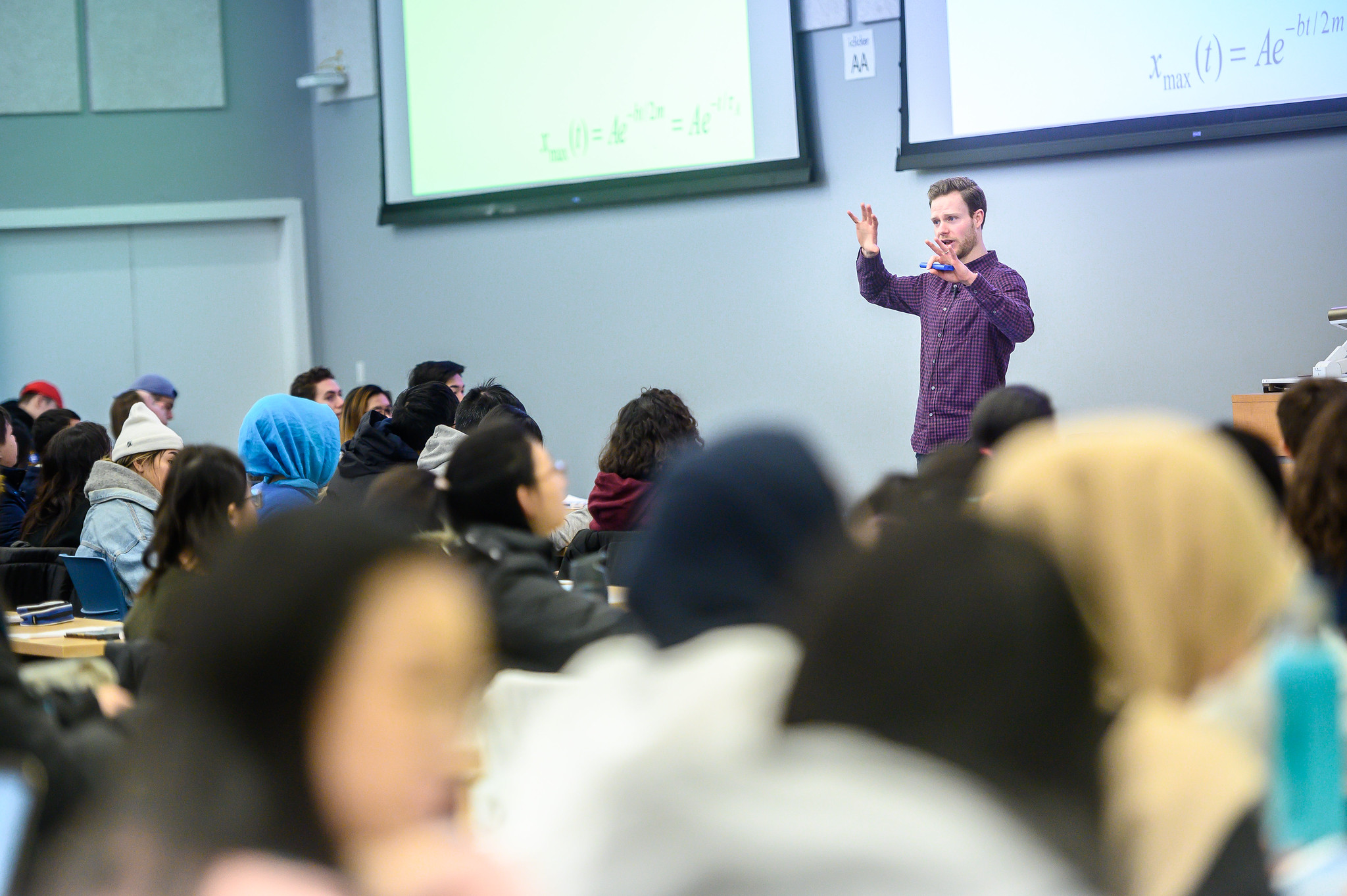Explore programs and degree options at UBC Science


PROGRAM OPTIONS: Major, Astronomy | Combined Honours, Physics and Astronomy
PROGRAM OPTIONS: Major or Honours, Atmospheric Science | Combined Honours, Atmospheric Science and Computer Science | Co-op
PROGRAM OPTIONS: Major or Honours, Biochemistry | Co-op
PROGRAM OPTIONS: Major or Honours, Biology | Honours, Animal Biology | Honours, Cell and Developmental Biology | Combined Major or Combined Honours, Computer Science and Biology | Honours, Conservation Biology | Honours, Ecology and Environmental Biology | Honours, Evolutionary Biology | Honours, Marine Biology | Honours, Plant Biology | Combined Honours, Chemical Biology (See Chemistry) | Combined Major or Combined Honours, Biology and Oceanography | Co-op
PROGRAM OPTIONS: Honours Biophysics
PROGRAM OPTIONS: Honours, Biotechnology
PROGRAM OPTIONS: Major or Honours Biology Plant Biology
PROGRAM OPTIONS: Major Cellular, Anatomical and Physiological Sciences | Co-op
PROGRAM OPTIONS: Major or Honours, Chemistry | Combined Honours, Chemistry and Mathematics | Combined Honours, Chemical Biology | Combined Honours, Chemical Physics (See Physics) | Combined Honours, Chemistry and another science subject | Co-op
PROGRAM OPTIONS: Major Cognitive Systems: Cognition and Brain | Major Cognitive Systems: Computational Intelligence and Design
PROGRAM OPTIONS: Major
PROGRAM OPTIONS: Major or Honours, Computer Science | Major or Honours, Computer Science (with Software Engineering option) | Combined Major and Honours, Computer Science and Biology | Combined Major, Computer Science and Another Science Subject | Combined Major or Honours Computer Science & Microbiology and Immunology | Combined Major and Honours, Computer Science and Mathematics | Combined Major and Honours, Computer Science and Physics | Combined Major and Honours, Computer Science and Statistics | Combined Major, Computer Science and Chemistry | Co-op
PROGRAM OPTIONS: Major, Data Science | Minor, Data Science | Co-op
PROGRAM OPTIONS: Major, Earth and Ocean Sciences | Co-op
PROGRAM OPTIONS: Major or Honours, Environmental Sciences
PROGRAM OPTIONS: Combined Honours, Biochemistry and Forensic Science | Co-op
PROGRAM OPTIONS: Major, Geographical Sciences
PROGRAM OPTIONS: Major Geology | Honours, Geological Sciences | Combined Honours, Geology and another subject | Co-op
PROGRAM OPTIONS: Major or Honours, Geophysics | Combined Honours, Geophysics and another subject | Co-op
PROGRAM OPTIONS: Major or Honours, Integrated Sciences | Co-op
PROGRAM OPTIONS: Major or Honours, Mathematics | Major, Mathematical Sciences | Combined Major, Mathematics and Economics | Combined Major, Computer Science and Mathematics (See Computer Science) | Combined Honours, Mathematics and another subject | Co-op
PROGRAM OPTIONS: Major or Honours, Microbiology and Immunology | Combined Major or Combined Honours, Computer Science and Microbiology and Immunology | Biotechnology in Microbiology and Immunology | Co-op
PROGRAM OPTIONS: Major | Co-op
PROGRAM OPTIONS: Combined Major: Oceanography and Chemistry | Honours, Fisheries Oceanography | Combined Honours, Oceanography and another subject
PROGRAM OPTIONS: Major or Honours, Pharmacology | Co-op
PROGRAM OPTIONS: Major or Honours, Physics | Honours, Biophysics | Combined Honours, Physics and Astronomy | Combined Major, Computer Science and Physics | Combined Honours, Physics and another science subject | Combined Honours, Chemical Physics | Combined Honours, Physics and Mathematics | Co-op
PROGRAM OPTIONS: Major or Honours, Statistics | Combined, Major Statistics and Economics | Combined Major or Combined Honours, Computer Science and Statistics | Combined Honours Mathematics and Statistics | Co-op
PROGRAM OPTIONS: Major or Honours Biology, Animal Biology
We honour xwməθkwəy̓ əm (Musqueam) on whose ancestral, unceded territory UBC Vancouver is situated. UBC Science is committed to building meaningful relationships with Indigenous peoples so we can advance Reconciliation and ensure traditional ways of knowing enrich our teaching and research.
Learn more: Musqueam First Nation